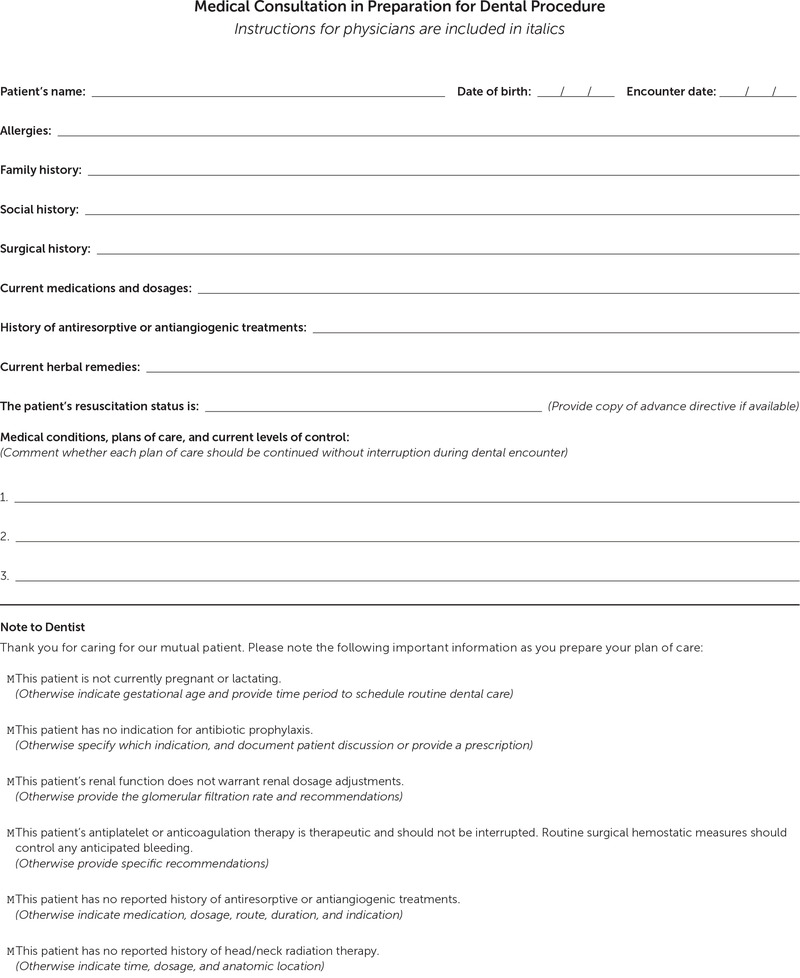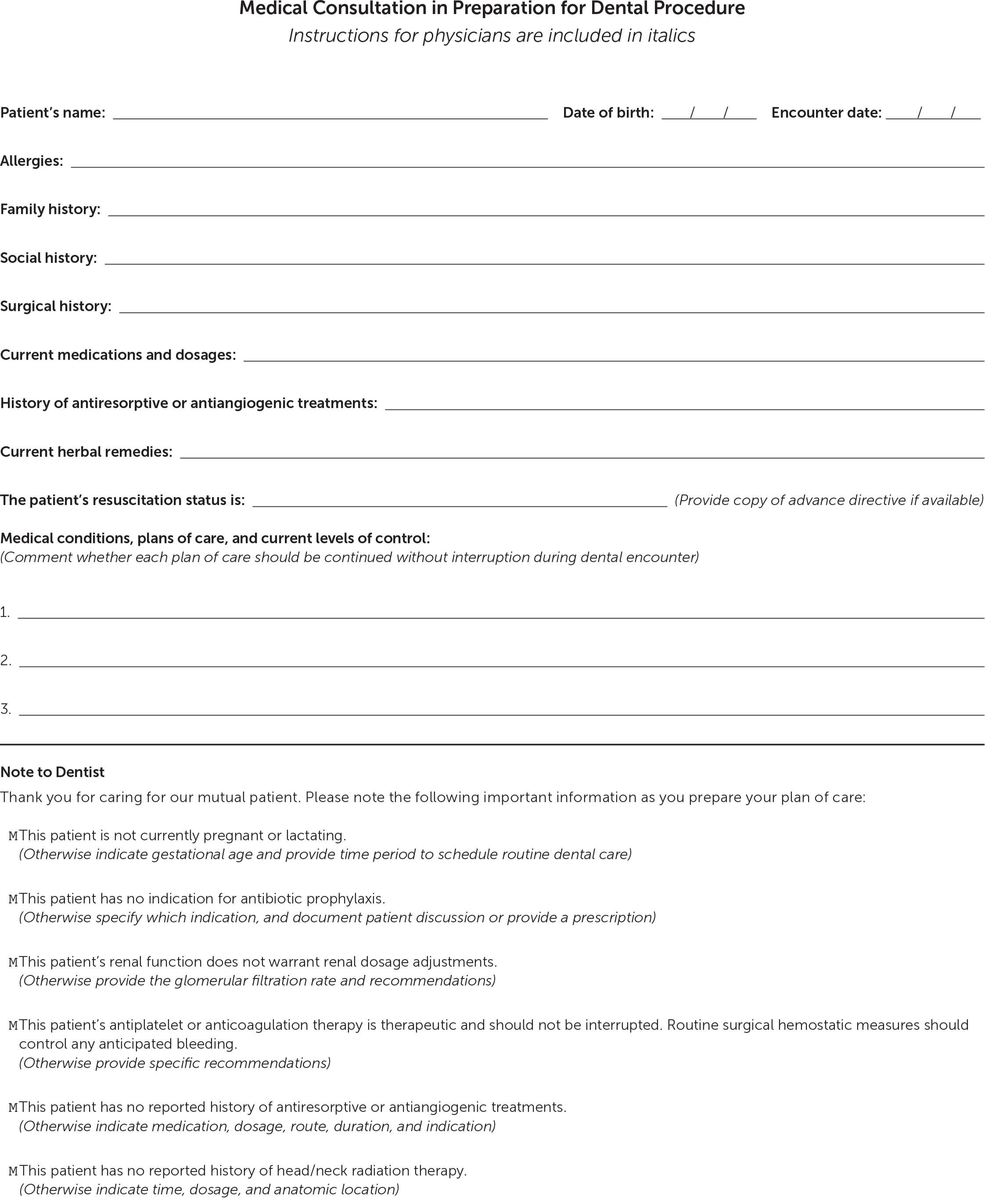
Picture this: you’re all set for your upcoming surgery, mentally preparing yourself for what lies ahead. But wait! Before you can even don that stylish hospital gown, there’s one more step you might not have considered – dental clearance. That’s right, folks! Before going under the knife, it’s crucial to ensure that your pearly whites are in tip-top shape.
In this article, we’ll explore the ins and outs of why dental clearance is necessary before surgery, and how it can impact your overall health and well-being. So, hold on tight and get ready for a journey through the mouth that might just change your perspective on pre-surgical dental care.

Why Do You Need Dental Clearance Before Surgery?
Dental clearance before surgery is a crucial step in ensuring the overall health and safety of the patient. It involves a thorough examination of the oral cavity to identify any potential risks or complications that may arise during the surgical procedure. Dental clearance is typically required for both minor and major surgeries, as dental issues can significantly impact the success and outcome of the procedure. In this article, we will explore the reasons why dental clearance is necessary before surgery and its importance in maintaining optimal oral health.
The Connection Between Oral Health and Overall Health
Maintaining good oral health is essential not only for a beautiful smile but also for overall well-being. The mouth is a gateway to the body, and any infections or inflammation in the oral cavity can spread to other parts of the body, affecting various systems. Poor oral health has been linked to cardiovascular diseases, respiratory infections, diabetes, and other systemic conditions. Therefore, it is crucial to assess and address any dental issues before undergoing surgery to minimize the risk of complications and ensure a smooth recovery.
When it comes to surgery, the mouth serves as a potential source of infection. Oral bacteria can enter the bloodstream during invasive procedures, leading to a condition called bacteremia. This can increase the risk of infection in other parts of the body, especially in individuals with compromised immune systems. By obtaining dental clearance before surgery, healthcare providers can identify and treat any existing dental infections, reducing the chances of bacteria spreading and causing post-operative complications.
The Importance of Dental Clearance Before Surgery
1. Identification and Treatment of Dental Problems: Dental clearance allows dentists to identify and address any existing dental issues before surgery. This includes oral infections, cavities, gum disease, and tooth decay. By treating these problems beforehand, the risk of complications during and after surgery can be significantly reduced.
2. Minimizing the Risk of Post-Operative Infections: Dental infections can pose a significant risk during surgery, as bacteria from the mouth can enter the surgical site and potentially lead to post-operative infections. By obtaining dental clearance, healthcare professionals can ensure that any existing infections are treated, minimizing the risk of complications and promoting a successful recovery.
3. Preventing Potential Complications: Dental problems such as loose teeth, broken fillings, or ill-fitting dentures can interfere with the surgical procedure and anesthesia administration. Dental clearance allows dentists to address these issues, ensuring a smooth and safe surgical experience.
4. Optimal Healing and Recovery: By addressing oral health concerns through dental clearance, patients can experience improved healing and recovery after surgery. Oral infections or untreated dental issues can delay the healing process, prolonging pain and discomfort. Dental clearance helps create an optimal environment for healing, minimizing post-operative complications and promoting a faster recovery.
The Dental Clearance Process
The dental clearance process typically involves the following steps:
1. Comprehensive Dental Examination: The dentist will perform a thorough examination of the oral cavity, including an assessment of the teeth, gums, jaw, and supporting structures. X-rays may be taken to identify any underlying issues that may not be visible to the naked eye.
2. Treatment Planning: Based on the examination findings, the dentist will develop a treatment plan to address any existing dental problems. This may include procedures such as dental fillings, root canal treatment, tooth extraction, or periodontal therapy.
3. Collaboration with the Surgical Team: The dentist will communicate with the surgical team to ensure a coordinated approach to the patient’s care. This may involve sharing information about oral health conditions, medications, and any necessary precautions to be taken during the surgery.
4. Post-Treatment Evaluation: After completing the necessary dental procedures, the patient will undergo a follow-up examination to ensure that the oral health issues have been effectively resolved. This evaluation is essential to provide the surgical team with assurance that the patient is ready to proceed with the planned procedure.
In conclusion, dental clearance before surgery is a vital step in ensuring the overall health and safety of the patient. By addressing any existing dental issues and minimizing the risk of post-operative infections, dental clearance plays a crucial role in promoting successful surgeries and optimal recovery. It is essential for patients to prioritize their oral health and consult with their dentist to determine the need for dental clearance before undergoing any surgical procedures.
Key Takeaways: Why Do You Need Dental Clearance Before Surgery?
- Dental clearance before surgery is necessary to ensure that there are no underlying dental issues that could cause complications during the procedure.
- Oral health is connected to overall health, and any infections or inflammation in the mouth can increase the risk of infection in other parts of the body post-surgery.
- Certain dental conditions, such as gum disease or tooth decay, can also lead to complications during anesthesia administration.
- By getting dental clearance before surgery, the dentist can identify and treat any dental problems that may interfere with the surgical procedure.
- Overall, dental clearance before surgery helps to minimize the risk of complications and ensures a smooth and successful surgical outcome.
Frequently Asked Questions
Before undergoing any surgical procedure, it is essential to obtain dental clearance. Dental clearance refers to the evaluation of a patient’s oral health by a dentist prior to surgery. This is necessary because oral health can have a significant impact on overall health and can affect the success of the surgery. Dental clearance ensures that any existing dental issues are addressed before the surgery takes place, reducing the risk of complications and promoting better outcomes.
1. How does oral health affect surgery?
Oral health plays a crucial role in overall health. Poor oral health can lead to various complications during surgery, such as infection, delayed healing, and increased risk of post-operative complications. For example, untreated gum disease or tooth infections can introduce bacteria into the bloodstream, potentially causing infections in other parts of the body. By obtaining dental clearance before surgery, any existing oral health issues can be identified and treated, reducing the risk of these complications.
2. What dental issues can affect surgery?
Several dental issues can impact the success of surgery. These include untreated cavities, gum disease, infected teeth or gums, abscesses, and oral infections. These conditions can harbor bacteria, which can spread to other areas of the body, leading to complications during and after surgery. Additionally, dental issues that cause pain or discomfort can interfere with the patient’s ability to tolerate the procedure and recover post-surgery. By addressing these dental issues before surgery, the risk of complications can be minimized.
3. How is dental clearance obtained?
To obtain dental clearance, the patient will need to visit a dentist for a comprehensive oral examination. The dentist will evaluate the patient’s oral health, looking for any signs of infection, decay, or other dental issues. X-rays may be taken to assess the condition of the teeth and supporting structures. Based on the findings, the dentist will develop a treatment plan to address any existing dental problems before the surgery. This may involve procedures such as fillings, extractions, or periodontal treatment.
4. Why is it important to address dental issues before surgery?
Addressing dental issues before surgery is crucial to minimize the risk of complications and promote better outcomes. By treating existing dental problems, the dentist helps eliminate potential sources of infection and reduces the risk of bacteria entering the bloodstream during the surgery. This can prevent the development of post-operative infections and promote faster healing. Additionally, addressing dental issues that cause pain or discomfort can improve the patient’s overall comfort and well-being during the surgical procedure.
5. What are the benefits of obtaining dental clearance before surgery?
Obtaining dental clearance before surgery offers several benefits. Firstly, it helps identify and treat any existing dental issues, reducing the risk of complications during and after surgery. Secondly, it promotes better overall health by addressing oral health problems that can impact the body’s immune system and general well-being. Lastly, obtaining dental clearance ensures that the patient is in optimal oral health, which can contribute to a smoother surgical experience and better surgical outcomes.
Who Needs Dental Clearance? (Dr Ansgar Cheng)
Final Thought: Why Dental Clearance is Crucial Before Surgery
So, why is dental clearance necessary?
Well, it serves as a crucial checkpoint to assess the oral health of patients before they undergo any surgical procedure. By evaluating the condition of the teeth, gums, and mouth, healthcare providers can identify and treat any underlying dental problems that could potentially impact the surgery. From infected teeth to gum disease, these issues can significantly increase the risk of infection and complicate the recovery process.
By obtaining dental clearance, patients can rest assured that their oral health has been thoroughly examined and any necessary interventions have been made. Whether it involves a routine dental cleaning or more extensive dental procedures, addressing dental issues beforehand can contribute to better surgical outcomes and overall patient satisfaction. So, don’t overlook the significance of medical clearance before dental surgery – it’s a small step that can make a big difference in ensuring a safe and successful procedure.
Call or Book appointment online
:Ace Dental Care Alpharetta office: 678-562-1555 - Book Now
Ace Dental Care Norcross office: 770-806-1255 - Book Now
Disclaimer
This blog post was generated by artificial intelligence. The content of this post may not be accurate or complete, and should not be relied upon as a substitute for professional advice. If you have any questions about the content of this post, please contact us.
We are constantly working to improve the accuracy and quality of our AI-generated content. However, there may still be errors or inaccuracies. We apologize for any inconvenience this may cause.





